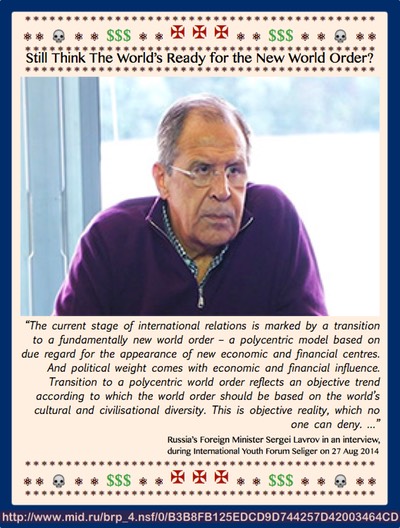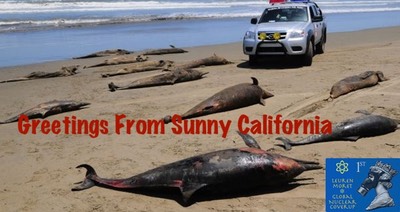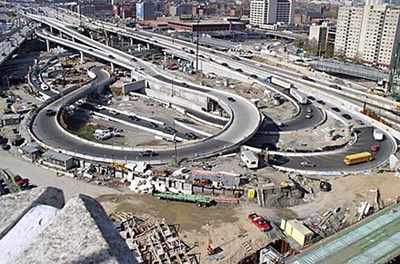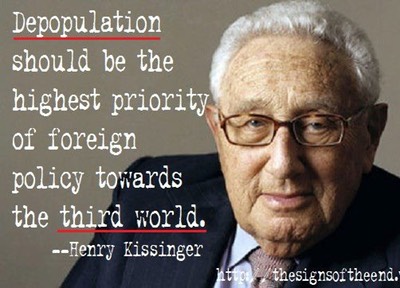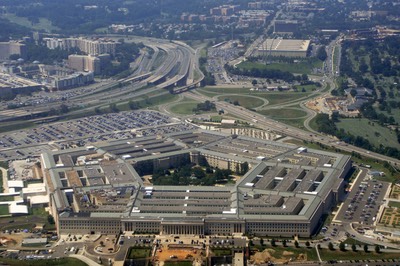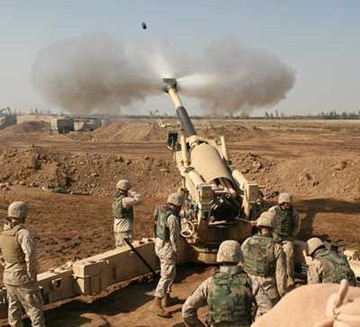ISIS Oil Trade Full Frontal: "Raqqa's Rockefellers", Bilal Erdogan, KRG Crude, and The Israel Connection
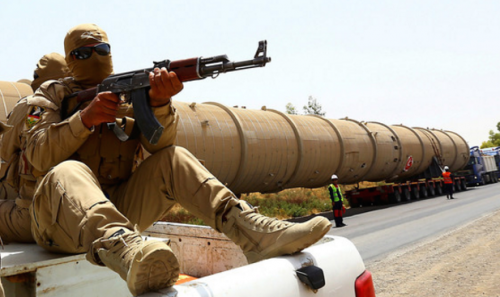
Submitted by Tyler Durden on 11/29/2015 09:32 -0500 | (at an Erbil oil refinery, the Kurds stand guard)
"Effectively, we have been financially discriminated against for a long time. By early 2014, when we did not receive the budget, we decided we need to start thinking about independent oil sales” -- Ashti Hawrami, Kurdistan’s minister for natural resources
In June of 2014, the SCF Altai (an oil tanker) arrived at Ashkelon port. Hours later, the first shipment of Kurdish pipeline oil was being unloaded in Israel. “Securing the first sale of oil from its independent pipeline is crucial for the Kurdish Regional Government (KRG) as it seeks greater financial independence from war-torn Iraq,” Reuters noted at the time, adding that “the new export route to the Turkish port of Ceyhan, designed to bypass Baghdad's federal pipeline system, has created a bitter dispute over oil sale rights between the central government and the Kurds.”
A week earlier, the SCF Altai received the Kurdish oil in a ship-to-ship transfer from the The United Emblem off the coast of Malta. The United Emblem loaded the crude at Ceyhan where a pipeline connects the Turkish port to Kurdistan.
The Kurds’ move to sell crude independent of Baghdad stems from a long-running budget dispute. Without delving too far into the details, Erbil is entitled to 17% of Iraqi oil revenue and in return, the KRG is supposed to transfer some 550,000 bpd to SOMO (Iraq’s state-run oil company). Almost immediately after the deal was struck late last year, Baghdad claimed the Kurds weren’t keeping up their end of the bargain and so, only a fraction of the allocated budget was sent to Erbil during the first five months of the year.
This was simply a continuation of a protracted disagreement between Erbil and Baghdad over how much of the state’s crude revenue should flow to the KRG. For its part, Iraq has threatened to sue anyone that buys independently produced Kurdish oil. For instance, when The United Kalavrvta - which left Ceyhan last June - prepared to dock in Galveston, Texas a month later, a SOMO official told Reuters that Iraq’s foreign legal team was “watching closely the movement of the vessel and [was] ready to target any potential buyer regardless of their nationality.”
You get the idea. Erbil wants a bigger piece of the pie, Baghdad doesn’t want to give it to them, and so some time ago, the KRG decided to simply cut the Iraqi government out and export crude on its own. The dispute is ongoing.
● ● ● .
Ok, so why are we telling you this? Recall that over the past several weeks, we’ve spent quite a bit of time documenting Islamic State’s lucrative black market oil trade. Earlier this month, Vladimir Putin detailed the scope of the operation in meetings with his G20 colleagues. "I’ve shown photos taken from space and from aircraft which clearly demonstrate the scale of the illegal trade in oil and petroleum products,” he told journalists on the sidelines of the G20 summit in Antalya. The very same day, the US destroyed some 116 ISIS oil trucks, an effort that was widely publicized in the Western media. In the two weeks since, Moscow and Washington have vaporized a combined 1,300 ISIS oil transport vehicles.
No one knows why it took the US 14 months to strike the convoys. The official line is that The Pentagon was concerned about “collateral damage”, but we doubt that’s the reason (for a detailed discussion of this, see here). Well now that the mainstream media have been forced to take a closer look at Islamic State’s main source of revenue (the group makes nearly a half billion a year in the illicit oil trade), we decided to take a closer look at exactly who is facilitating the transport of the stolen crude and where it ultimately ends up because you can be sure that the story you get from the major wires will be colored by a slavish tendency to avoid any and all “inconvenient” revelations. This is the fourth in a series of articles on the subject and we encourage you to review the first three:
- The Most Important Question About ISIS That Nobody Is Asking
- Meet The Man Who Funds ISIS: Bilal Erdogan, The Son Of Turkey's President
- How Turkey Exports ISIS Oil To The World: The Scientific Evidence
On Friday we highlighted an academic study by George Kiourktsoglou and Dr Alec D Coutroubis who took a look at tanker rates at Ceyhan around siginifant oil-related events involving ISIS. Here's what the researchers found:
In their words, "it seems that whenever the Islamic State is fighting in the vicinity of an area hosting oil assets, the 13 exports from Ceyhan promptly spike. This may be attributed to an extra boost given to crude oil smuggling with the aim of immediately generating additional funds, badly needed for the supply of ammunition and military equipment."
Now you can begin to see the connection. Ceyhan is the port from which Kurdish oil (technically "illegal" to let Baghdad tell it) is transported, and as Kiourktsoglou and Coutroubis note, "the quantities of crude oil that are being exported to the terminal in Ceyhan exceed the mark of one million barrels per day and given that ISIS has never been able to trade daily more than 45,000 barrels of oil, it becomes evident that the detection of similar quantities of smuggled crude cannot take place through stock-accounting methods." In other words, if ISIS oil was being shipped from Ceyhan, it would essentially be invisible.
Here's where things get interesting. A few weeks ago, Reuters released an exclusive report detailing how Erbil hides its crude shipments from Baghdad. Here are some of the details:
- Most customers were scared of touching it with Baghdad threatening to sue any buyer. Large oil companies - including Exxon Mobil and BP - have billions of dollars worth of joint projects with Baghdad.
- Some buyers took tankers to Ashkelon, Israel, where it was loaded into storage facilities to be resold later to buyers in Europe. Kurdish oil was also sold offshore Malta via ship-to-ship transfers helping disguise the final buyers and thus protect them from threats from Iraqi state firm SOMO.
- It was a high stakes game. A ship would dock off Malta waiting for another to arrive to take a cargo to a final destination. Sometimes two ships would be sent - one sailing off empty and another full - to complicate cargo tracking.
- "Everyone suddenly became a ship tracking expert. So we had to raise our game too ... But one thing was proven correct - when oil is out, it flows," said Hawrami.
Ok, so a scheme involving ship-to-ship transfers off the coast of Malta was used to get Kurdish crude to places like Israel. "Israeli refineries and oil companies imported more than 19m barrels of Kurdish oil between the beginning of May and August 11, according to shipping data, trading sources and satellite tanker tracking," FT reported last week. "That is the equivalent of about 77 per cent of average Israeli demand, which runs at roughly 240,000 barrels per day. More than a third of all of the northern Iraqi exports, which are shipped from Turkey’s Mediterranean port of Ceyhan, went to Israel over the period."
At this juncture, we begin to get an idea of what's going on here. Kurdish oil is already technically illegal and Turkey is happy to facilitate its trip to foreign buyers via Ceyhan. What better way for ISIS to get its own oil to market than by moving it through a port that already deals in suspect crude? Al-Araby al-Jadeed (a London-based media outlet owned by the Qatari Fadaat Media) claims to have obtained a wealth of information about the route to Ceyhan from an unnamed colonel in the Iraqi Intelligence Services. Here's their account:
- The information was verified by Kurdish security officials, employees at the Ibrahim Khalil border crossing between Turkey and Iraqi Kurdistan, and an official at one of three oil companies that deal in IS-smuggled oil.
- The Iraqi colonel, who along with US investigators is working on a way to stop terrorist finance streams, told al-Araby about the stages that the smuggled oil goes through from the points of extraction in Iraqi oil fields to its destination - notably including the port of Ashdod, Israel.
- "After the oil is extracted and loaded, the oil tankers leave Nineveh province and head north to the city of Zakho, 88km north of Mosul," the colonel said. Zakho is a Kurdish city in Iraqi Kurdistan, right on the border with Turkey.
- "After IS oil lorries arrive in Zakho - normally 70 to 100 of them at a time - they are met by oil smuggling mafias, a mix of Syrian and Iraqi Kurds, in addition to some Turks and Iranians," the colonel continued.
- "The person in charge of the oil shipment sells the oil to the highest bidder," the colonel added. Competition between organised gangs has reached fever pitch, and the assassination of mafia leaders has become commonplace.
- The highest bidder pays between 10 and 25 percent of the oil's value in cash - US dollars - and the remainder is paid later, according to the colonel.
- The drivers hand over their vehicles to other drivers who carry permits and papers to cross the border into Turkey with the shipment, the Iraqi intelligence officer said. The original drivers are given empty lorries to drive back to IS-controlled areas.
- Once in Turkey, the lorries continue to the town of Silopi, where the oil is delivered to a person who goes by the aliases of Dr Farid, Hajji Farid and Uncle Farid.
- Uncle Farid is an Israeli-Greek dual national in his fifties. He is usually accompanied by two strong-built men in a black Jeep Cherokee.
- Once inside Turkey, IS oil is indistinguishable from oil sold by the Kurdistan Regional Government, as both are sold as "illegal", "source unknown" or "unlicensed" oil.
- The companies that buy the KRG oil also buy IS-smuggled oil, according to the colonel.
Now obviously that's a remarkable degree of detail, but regardless of whether you believe in "Uncle Farid" and his black Jeep Cherokee, the main point is that there are smuggling routes into Turkey and once the oil is across the border, it might as well be Kurdish crude because after all, it's all "illegal", "unlicensed" product anyway, just as we said above.
Next, Al-Araby al-Jadeed says a handful of oil companies (which they decline to identify) ship the oil from the Turkish ports of Mersin, Dortyol and Ceyhan to Israel.
Here's the alleged route:
While the graphic shows the crude going directly from Ceyhan to Ashdod, it's worth asking whether ISIS crude is also "laundered" (as it were) through the same Malta connection utilized by those smuggling "illegal" Kurdish crude (which also ends up in Israel). We ask that because as it turns out, Bilal Erdogan owns a Maltese shipping company. "The BMZ Group, a company owned by President Recep Tayyip Erdogan's son Bilal alongside other family members, has purchased two tankers in the last two months at a total cost of $36 million," Today's Zaman reported in September. "The tankers, which will be registered to the Oil Transportation & Shipping company in October -- an affiliate of the BMZ Group set up in Malta -- were previously rented to the Palmali Denizcilik company for 10 years."
Here's a look at recent port data from Ceyhan and Ashdod via Fleetmon.com (Malta-flagged oil vessels are highlighted).
Ceyhan
Ashdod
To be sure, all of this is circumstantial and there's all kinds of ambiguity here, but it seems entirely possible that Erdogan is knowingly trafficking in ISIS crude given what we know about Ankara's dealings with illegal Kurdish oil. Consider this from al-Monitor:
- Details of the energy deals struck between Turkey and the KRG remain sketchy amid claims that Erdogan and his close circle are financially benefiting from them. According to Tolga Tanis, the Washington correspondent for the mass circulation daily Hurriyet who investigated the claims, Powertrans, the company that was granted an exclusive license to carry and trade Kurdish oil by Erdogan’s Cabinet in 2011, is run by his son-in-law Berat Albayrak. It didn’t take long for the notoriously litigious Erdogan to file defamation charges against Tanis.
- Several Iraqi Kurdish officials who refused to be identified by name confirmed that Ahmet Calik, a businessman with close ties to Erdogan, had been granted the tender to carry Kurdish oil via overland by trucks to Turkey.
In other words, Erdogan is already moving illicit crude from the KRG (with whom Ankara is friendly by the way, despite the fact that they are Kurds) via a son-in-law and in large quantities. What's to say he isn't moving ISIS crude via the same networks through his son Bilal? Or perhaps through his other son Burak who Today's Zaman reminds us "also owns a fleet of ships [and] was featured in a report by the Sözcü daily in 2014 [when his] vessel Safran 1 was anchored in Israel's port of Ashdod." Here's a picture circulated on social media that purports to show Bilal Erdogan with ISIS commanders (because we do try at all times to be unbiased, we should also note that the men shown below could just be three regular guys with beards with no connection to any black flag-waving desert bandits):
Recep Tayip Erdogan's son "BILAL ERDOGAN" with his ISIS brothers #StopTurkeySuppportOfISIS pic.twitter.com/5IBfXeFo9w
— Dilxaz Sofiyan (@Dilxazsofi) September 20, 2014
Russian media claims the men are "ISIS leaders who it is [thought] participated in massacres in Syria’s Homs and Rojava, the Kurdish name for Syrian Kurdistan or Western Kurdistan."
⬆︎Bilal Erdogan with ISIL Leaders⬇︎

One person who definitely thinks the Erdogans are trafficking in ISIS oil is Syrian Information Minister Omran al-Zoubi who said the following on Friday:
- “All of the oil was delivered to a company that belongs to the son of Recep [Tayyip] Erdogan. This is why Turkey became anxious when Russia began delivering airstrikes against the IS infrastructure and destroyed more than 500 trucks with oil already. This really got on Erdogan and his company’s nerves. They’re importing not only oil, but wheat and historic artefacts as well."
And then there's Iraq's former National Security Adviser Mowaffak al-Rubaie who posted the following to his Facebook page on Saturday:
- “First and foremost, the Turks help the militants sell stolen Iraqi and Syrian oil for $20 a barrel, which is half the market price."
Meanwhile, the US is preparing for an all-out ISIS oil propaganda war. As WSJ reported on Wednesday, "the Treasury [has] accused a Syrian-born businessman, George Haswani, who his a dual Syrian-Russian citizen, of using his firm, HESCO Engineering and Construction Co., for facilitating oil trades between the Assad regime and Islamic State." Why Assad would buy oil from a group that uses the cash at its disposal to wage war against Damascus is an open question especially when one considers that Assad's closest allies (Russia and Iran) are major oil producers. Of course between all the shady middlemen and double dealing, there's really no telling.
Ultimately we'll probably never know the whole story, but what we do know (and again, most of the evidence is either circumstantial, anecdotal, of largely qualitative) seems to suggest that in addition to providing guns and money to the FSA and al-Nusra, Turkey may well be responsible for facilitating Islamic State's $400+ million per year oil enterprise. And as for end customers, consider the following bit from Al-Araby al-Jadeed:
- According to a European official at an international oil company who met with al-Araby in a Gulf capital, Israel refines the oil only "once or twice" because it does not have advanced refineries. It exports the oil to Mediterranean countries - where the oil "gains a semi-legitimate status" - for $30 to $35 a barrel.
- "The oil is sold within a day or two to a number of private companies, while the majority goes to an Italian refinery owned by one of the largest shareholders in an Italian football club [name removed] where the oil is refined and used locally," added the European oil official.
- "Israel has in one way or another become the main marketer of IS oil. Without them, most IS-produced oil would have remained going between Iraq, Syria and Turkey. Even the three companies would not receive the oil if they did not have a buyer in Israel," said the industry official.
Finally, you'll note that this is all an effort to answer what we called "the most important question about ISIS that no one is asking" - namely, "who are the middlemen?" As we noted more than a week ago, "we do know who they may be: the same names that were quite prominent in the market in September when Glencore had its first, and certainly not last, near death experience: the Glencores, the Vitols, the Trafiguras, the Nobels, the Mercurias of the world." Consider that, and consider what Reuters says about the trade in illicit KRG oil: "Market sources have said several trading houses including Trafigura and Vitol have dealt with Kurdish oil. Both Trafigura and Vitol declined to comment on their role in oil sales."
Similarly, FT notes that "both Vitol and Trafigura had paid the KRG in advance for the oil, under so-called 'pre-pay' deals, helping Erbil to bridge its budget gaps."
Indeed, when Kurdistan went looking for an advisor to assist in the effort to circumvent Baghdad, the KRG chose "Murtaza Lakhani, who worked for Glencore in Iraq in the 2000s, to assist finding ships."
"He knew exactly who would and who wouldn't deal with us. He opened the doors to us and identified willing shipping companies to work with us," Ashti Hawrami (quoted above) said.
Indeed. And given everything said above about the commingling of illegal KRG crude and illicit ISIS oil shipments, it's probably a foregone conclusion that these same firms are assisting in transport arrangements for Islamic State.
Visitors to LM:GNC
Leuren Moret: Global Nuclear Coverup
- ❁ Currents
- ⚛ Radiation Omnicide 👥
- 🎥 UC, Davis, Katehi, Illuminati ✠
- 🌎✟☦ One World Religion 🎭
- ♞ Atlanticists v. Putin et al ⚪️
- ✈️ 3 NWO False Flags Connected ➷
- 🔪Ukrainian ✠ Wikileaks 👀 Interview 🎥
- 🚫 Out of Eurasia 🚫
- 💀 Jade Helm, International Implications, NWO Rollouts ⏰
- 🌿 Essential Oils, Nutrition, Frequencies & Health 🌺
- 🎯 R.F.D.E. | H.A.A.R.P. | N.L.P. ⚡️
- ⚛ Leuren Moret: Hiroshima, Nagasaki, Fukushima ⚛
- ❦ Moret & Battis: Jade Helm ❦
- 🌎 New World Order America 🇺🇸
- ⨳ Geopolitics Ukraine | E.U. Judo 🌍
- 👥 Template: Jade Helm
- ✠ America’s Domestic Pacification ✠
- ♨️ Chernobyl, Zaporozhye, Blackmail ⚛
- 💉 REBRANDING DISASTER🔪
- 👤 Eurasian Enigma Arises
- 🔴 Donetsk Nuclear Explosion ⚫️
- 🌍 21st Century Silk Road 🌏
- 🌍 Africa ☗
- ♞ Balkans, The Nameless Triangle
- 🌏 China 🌝
- 🌍 Eurasia 🔴
- 💣 Israel: Out of Erupt!
- ✠ Jesuits/Templar’s Origins & Aims
- 👺 SOROS ✠ NWO 📚 Hacked ✍
- ➴ Pyatt’s ✠ SOROS ♞ Breakfast 🍳
- Breedlove, GOOD RIDDANCE
- 🎱 Obama’s $3 Billion Eurocon 💸
- 🌍 A Psychopath’s Psychopath ✠
- 🔫 Global Hit Squad 💣
- 💀 Neo-Capitalist’s Slave Trade 💰
- 🇺🇸 Bio: Undermine Control
- ↷ Fine Evening For A Minuet ↶
- ✠ Slavery, Then & Now
- 💣 JCS Operation Northwoods
- ✠ The Three Secret Meetings
- Korea Yeonhee (연희) Nuclear Kabuki Theatre
- 🌍 Middle East 💣
- 💣 ISIL: Battered, Retreating 💀
- 🔥 Turkish Coup Attempt 💣
- ⚑ Muslim Brotherhood and ISIS ⚫️
- 🔫💰💉Daesh Terrorist Multi-Tool🔪💣💊
- 🚧 US and Turkey, NWO the Kurds 💸
- ✠ Hitler Bragged on Jesuits ✠
- 🍞 Their Daily Bread & Rubble 💣
- 🔪“Erdogan is Strengthening ISIS”💣
- 🇫🇷 Russia Reveals ISIS’ Money 💰💰
- "Raqqa's Rockefellers” ISIS Full Frontal
- ☞ Smashing Turkey’s Game❌
- 🌍 Juncker | E.U. | Direction ⤣
- 🔪 GLADIO Wolf Kills Russian Pilot ✈︎
- ✈︎ Washington’s SU-24 🎯
- 🌐 Turkey, NATO, War Crime? 🔎
- ➷ 449-Down, ISIL to Go 💣
- 🌎 North America 🔥✠
- 🇷🇺 Russia 🇷🇺
- 🇷🇺 PUTIN OVERHAULS KREMLIN 🏰
- ☛ Who Created ISIS ☚
- 🍳 Food Supply Compromised 🎱
- 🌍 Putin re Ceasefire Syria 🌐
- 👤 Cold War Re-Run 👀
- 🌐 Minsk 101 | Theatre of the Absurd 🌍
- 🌐 Geopolitical Original Sin 🌍
- ♘ Russian Troops | Turkish Border ♘
- 📚 Educating Charlie Rose 🔑
- 🌍 Lavrov's Munich Speech
- 🎱 US Embassy Media Fail 🎭
- ✠ ♛🃏 Putin’s Jar Of Spiders
- 🎱 MOSSAD’S ON THE DOORSTEP 💣
- 📄 This Document is Dynamite 📄
- ♔ The Golden Trap
- ❁ Russian Fusion-Fission
- ❁ Putin’s 7-Point Plan
- ❁ Russian Position Speech
- ✈︎ Ukraine, MH-17, Jesuits Flagged! BRICS Undermined?
- ⏰ Ukraine? 🔥 Bail Out! ✈️
- 💦👤 Psychotropic Zombification ☔️
- 💣 Odessa Trade Union Murders 🔥
- 🃏 Nothing Personal, Just Business 💰
- 💉 BioWeapons for Depopulation 💀
- ⚛ Nuclear Coverup Ukraine | Mines of Zholti Vody 💀
- 🔥 Unsustainable Ukraine 👥
- ☗ ASHES TO ASHES 💀
- 🔪Ukrainian Wikileaks 👀
- ☞ Dispatches From the Front 🔫
- 💣 The Ukrainian Failed State 🌍
- 🔑 Our Decisions Define Us🔑
- ✠ Child Abuse 💀
- 💣 Mozgovoi’s Murder 🔪
- 🎱 Yatsenyuk's Russian Threat 🔮
- ||| Prison Ukraine |||
- ✍ CyberBerkut Reports 👥
- ♨️ Crazy Arseniy’s -USED- Ukraine Fire Sale! ♨️
- ✝ AZOV CRUCIFIXION ✝
- 👤 Eyewitness Debaltsevo Cauldron 💀
- ✍ Historic Slaviansk Doctor Interviewed
- 💀 The Tragedy of Uglegorsk
- ♟ Jan. 2015 Minsk Fail 🃏
- ➷ Tochka Found, Debaltsevo Locked
- 🌍 World Facing Second Chernobyl
- ✈︎ MH-17 AND THE Jesuit Minuet
- ✈︎ MH-17, Jesuits Flagged!, Video
- 💀 Death’s Drummers
- 👤 DPR! Novorossiya Calling
- 💀 Ukraine’s Chernobyl Armor
- 🎱 Gas to Ukraine Blocked
- ❁ Global Nuclear Theatre: Donbass
- ✠ GHOSTS of the 51st BRIGADE
- ❁ Novorossiya: Strelkov Briefing
- 👤 Open Letter to President Putin
- ✈︎ MH-17 Dutch Interim Report
- 💣 Surrendering UA Murdered by Punatives
- ♟ Mutiny of the Euro-Integrators ♟
- ➹ View from Ukraine Operating Room
- ❁ Ukraine’s Violent Escalation
- ❁ Ukrainian Soldier’s Cry for Help
- ⧱ Occupied Ukraine ⧱
- ❁ US State's Nuland Directs Ukrainian Coup
- 📯 Ukraine Deputies Knew Before Maidan
- ❁ Health In 2015
- 💉 Vaccines 💀
- 🎥 Geopolitics, Jesuits & History
- 🎥 Rebranded ✠ The Jesuits ✠
- ⚛ Zaporhyze Nuclear Events & Geopolitics
- ❁ Fukushima Polar Vortex Radiation ❁
- 💀 Embrace, Enfold, Extinguish
- ✈︎ Fear of Flying . . . (1of4)
- ❁ Fukushima: Impact of Fallout On Oceans (Pt.1)
- ❁ Fukushima: Impact of Fallout On Oceans (Pt. 2)
- ❁ North America, Middle East and Fukushima
- ❁ DHS/Napolitano Berkeley Template
- ❁ Fukushima Radiation, Ecocide & Tesla Technology
- ✈︎ Flight 370 Downing
- ✈︎ MH370: The Follow-Up
- ❁ Domestic Radiation Issues
- ❁ Fukushima: Hawaii, Pacific Is. - Unsafe
- ⚛ Fukushima Reactors, Breakdown 1-6 ⚛
- 🌏 International Sites Featuring LM:GNC
- ❁ On To Mongolia 🎥
- 🎥 LKM On Fairdinkum Media 🎥
- ❁ Editorial Page
- ❁ Conversations 📬
- ❁ Waves
- ⚛ Radiation Around The Nation 🌎
- ⚛ Your Radiation #73/74, Sep 10 - 24, 2016 🌎
- ⚛ Your Radiation #71/72, Aug 27 - Sep 10, 2016 🌎
- ⚛ Your Radiation #69/70, July 30 - August 13, 2016 🌎
- ⚛ Your Radiation #67/8,--July 16-30, 2016 🌎
- ⚛ Your Radiation #65-6,--July 2-16, 2016 🌎
- ⚛ Your Radiation #64, July 2-9, 2016 🌎
- ⚛ Your Radiation #62-3, June 18 - July 2, 2016 🌎
- ⚛ Your Radiation #61, June 11-18, 2016 🌎
- ⚛ Your Radiation #60, June 4-11, 2016 🌎
- ⚛ Your Radiation #59, May 28 - June 4, 2016 🌎
- ⚛ Your Radiation #58, May 21-28, 2016 🌎
- ⚛ Your Radiation #57, May 14-21, 2016 🌎
- ⚛ Your Radiation #56, May 7-14, 2016 🌎
- ⚛ Your Radiation #55, Apr 30 - May 7, 2016 🌎
- ⚛ Your Radiation #54, Apr 23-30, 2016 🌎
- ⚛ Your Radiation #53, Apr 16-23, 2016 🌎
- ⚛ Your Radiation #52, Apr 9-16, 2016 🌎
- ⚛ Your Radiation #51, Apr 2-9, 2016 🌎
- ⚛ Your Radiation #47-50, Mar 5 - Apr 2, 2016 🌎
- ⚛ Your Radiation #46, Feb 27-Mar 5, 2016 🌎
- ⚛ Your Radiation #45, Feb 20-27, 2016 🌎
- ⚛ Your Radiation #44, Feb 13-20, 2016 🌎
- ⚛ Your Radiation #43, Feb 6-13, 2016 🌎
- ⚛ Your Radiation #42, Jan 30 - Feb 6, 2016 🌎
- ⚛ Your Radiation #41, Jan 23-30, 2016 🌎
- ⚛ Your Radiation #40, Jan 16-23, 2016 🌎
- ⚛ Your Radiation #39, Jan 9-16, 2016 🌎
- ⚛ Your Radiation #38, Jan 2-9, 2016 🌎
- ⚛ Your Radiation #37, Dec 26 - Jan 2, 2015|16 🌎
- ⚛ Your Radiation #36, Dec 19-26, 2015 🌎
- ⚛ Your Radiation #35, Dec 12-19, 2015 🌎
- ⚛ Your Radiation #34, Dec 5-12, 2015 🌎
- ⚛ Your Radiation #33, Nov 28 - Dec 5, 2015 🌎
- ⚛ Your Radiation #32, Nov 21-28, 2015 🌎
- ⚛ Your Radiation #31, Nov 14-21, 2015 🌎
- ⚛ Your Radiation #30, Nov 7-14, 2015 🌎
- ⚛ Your Radiation #29, Oct 31 - Nov 7, 2015 🌎
- ⚛ Your Radiation #28, Oct 24-31, 2015 🌎
- ⚛ Your Radiation #27, Oct 17-24, 2015 🌎
- ⚛ Your Radiation #26, Oct 10-17, 2015 🌎
- ⚛ Your Radiation #25, Oct 3-10, 2015 🌎
- ⚛ Your Radiation #24, Sep 26 - Oct 2, 2015 🌎
- ⚛ Your Radiation #23, Sep 19-26, 2015 🌎
- ⚛ Your Radiation #22, Sep 12-19, 2015 🌎
- ⚛ Your Radiation #21, Sep 5-12, 2015 🌎
- ⚛ Your Radiation #20, Aug 29 -Sep 5, 2015 🌎
- ⚛ Your Radiation #19, Aug 22-29, 2015 🌎
- ⚛ Your Radiation #18, Aug 15-22, 2015 🌎
- ⚛ Your Radiation #17, Aug 8-15, 2015 🌎
- ⚛ Your Radiation, August 1-8, 2015 🌎
- ⚛ Your Radiation, July 24-31, 2015 🌎
- ⚛ Your Radiation, June 26 - July 24, 2015 🌎
- ⚛ Your Radiation, June 19-26, 2015 🌎
- ⚛ Your Radiation, June 12-19, 2015 🌏
- ⚛ Your Radiation, June 5-12, 2015 🌎
- ⚛ Your Radiation, May 29 - June 5, 2015 🌎
- ⚛ Your Radiation, May 22-29, 2015 🌎
- ⚛ Your Radiation, May 15-22, 2015 🌎
- ⚛ Your Radiation, May 8-15, 2015 🌎
- ⚛ Your Radiation, May 2-8, 2015 🌎
- ⚛ Your Radiation, April 24 - May 1, 2015 🌎
- ⚛ Your Radiation, April 17-24, 2015 🌎
- ⚛ Your Radiation, April 9-16, 2015 🌎
- 🔥 Fire at Oak Ridge 💥
- 💥 NANOWEAPONRY 💥
- 🐄 Radioactive Cattle Teeth, Fukushima 🏭
- 📰 WikiLeaks 🔎 NSA and More 🔦
- ✨Nano ‘Hall of Mirrors’⚡️
- ⚛ 💀 ⚛ into the Hudson River 🌎
- 🚿 Flint, Metropolitan Eugenics 💀
- 🌍 Existential Threat? ☛NATO☚
- 💉 Gates, Poroshenko; Conspiracy, Government 🎯
- 💉 Gates-Poroshenko ZPG Ukraine 💀
- 💀 Paris Massacre Perpetrators 👤
- 🔪 Delgado, Mind Control ♟
- 🌎 MOST NUKED NATION ON EARTH 🌎
- 🎯 Radio Frequency Directed Energy 🎯
- ⚛ Please, Don’t Pick the Mutants 🌻
- ⨳👤⨳ Space-Based Weapons Ban
- √ Saudi OP Strategy Success
- ♨️ Gallery ♨️ Chernobyl Fire ♨️ 2015 ♨️
- 🌍 Monsanto Backdoors E.U.
- 🎉 Crimea’s 1st Anniversary Album 🎉
- 🌏 21st Century Eschalon
- 📰 International Headline Watch 🌏
- ✄ Prouty Place ✑ CUT THE BULL ✂︎
- 🌏 How To Wreck The Environment
- 🇯🇵 Plutonium Isotopes Off Japan
- 🌍 Depopulation Agenda: Europe 👤
- 🔪💉Cease Covert Depopulation Letter🔪💉
- ❁ Dutch Apologize for MH-17 Lies
- ❁ Pacific Dead from Fukushima
- ❁ Strange Fish Story
- ❁ Blood Composition of Monkeys Altered Near Fukushima
- ❁ Secret Army Bases
- ⚛ Fukushima Plutonium Effect ⚛
- ➷ RAND Demographic Military Power ➷
- ⚛ Depleted Uranium | DNA Damage ⚛
- ❁ Hidden Genocide: by Dr. Ernest Sternglass
- ❁ Space Preservation Act of 2001
- ❁ 1972 Rothschild Ball
- ❁ Unsafe Radwaste Disposal
- ♆ Fallout and Reproduction of Ocean Fish Populations
- ⚛ Radiation Around The Nation 🌎
- ❁ Lifestyle
- ❁ Archive
- ⚛ 61 Years of Omnicide ⚛
- 📻 Nanoparticle Toxicity with Leuren Moret ❦
- ❁ New Bombs and War Crimes in Fallujah
- ❁ Global Climate Change . . .
- ⚛ International Radiation Distribution ⚛
- 💀 Depleted Uranium’n’DNA 😱
- ❁ UC Regents Lose Nuke Pgm
- ❁ DU-Trojan Horse
- ❁ LM:GNC (Pt1)
- ❁ LM:GNC (Pt2)
- ❁ World Uranium Weapons Conference 2003
- ⚛ Radionuclide ReMobilization Abatement
- ❁ "America First" Transcription
- ❁ "Whale Archive" Transcription
- ⚛ ⚛ ⚛ Location, Leuren Moret: Global Nuclear Coverup ⚛ ⚛ ⚛
- ❁ Glossary
- ❁ Contact
💸LM:GNC 20151204 ✈︎
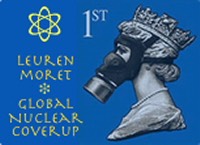
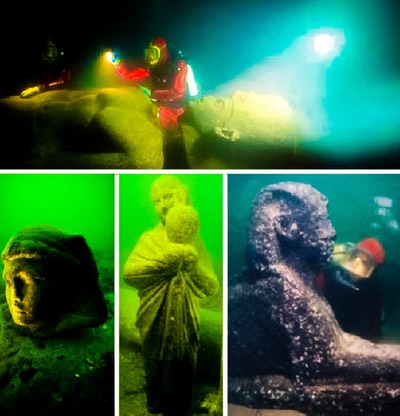
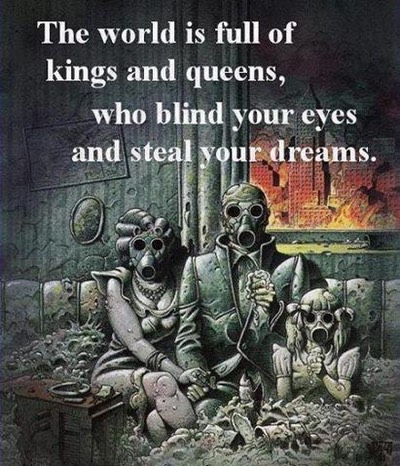

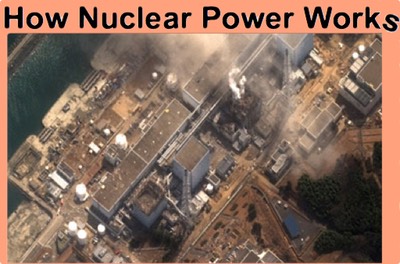

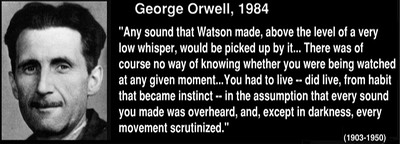
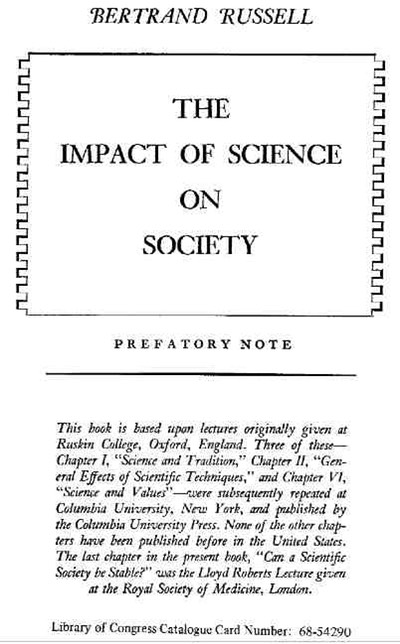
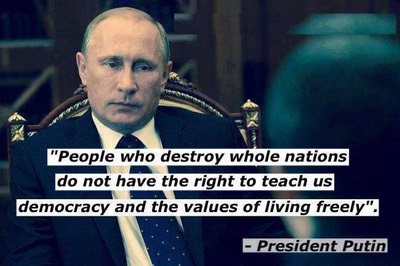
![20120724 - 7-24-2012 The More We Learn - quote from David Rockfeller -_thumb[2]](../../../_Media/20120724---7-24-2012-the_med_hr.jpeg)
